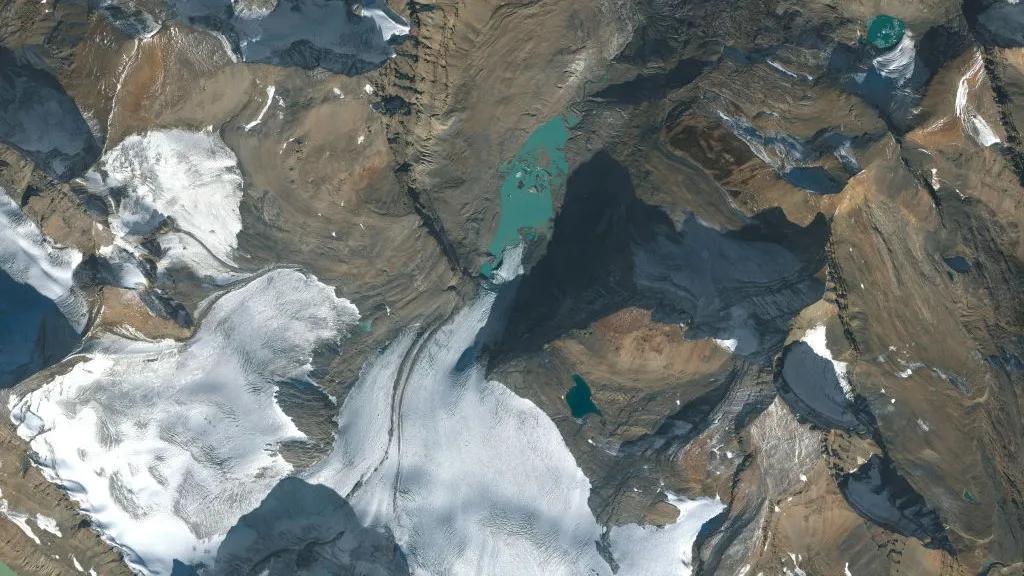
North America & Europe’s Glaciers Lost Unprecedented Ice in 4 Years: Study
The world is facing an unprecedented environmental crisis, with rising temperatures and climate change having far-reaching consequences on our planet’s natural systems. One of the most alarming signs of this crisis is the rapid melting of glaciers across the globe. A recent study has found that glaciers in North America and Europe have lost an unprecedented amount of ice in just four years, with the rate of melting accelerating at an alarming rate.
According to the study, published in the journal Geophysical Research Letters, glaciers in Washington, Montana, British Columbia, Alberta, and the Swiss Alps lost “unprecedented” ice between 2021 and 2024. The researchers found that these glaciers lost twice the amount of ice recorded from 2010 to 2020, with the rate of melting accelerating at an alarming rate.
The study, which was conducted by a team of scientists from the University of Colorado Boulder and the University of Montana, used a combination of satellite imagery and field measurements to track the changes in glacier mass between 2021 and 2024. The researchers found that the glaciers in the study area lost an average of 24.5 billion tons of ice per year, with some glaciers losing as much as 40% of their mass.
The Swiss Alps, which are known for their picturesque mountain landscapes and world-class skiing, were also affected by the rapid melting of glaciers. The researchers found that the glaciers in the Swiss Alps lost an average of 1.7 billion tons of ice per year, with some glaciers losing as much as 25% of their mass.
The study’s findings have significant implications for the environment, as glaciers play a critical role in regulating the Earth’s climate. Glaciers help to regulate the Earth’s temperature by reflecting sunlight and absorbing heat, and they also provide a source of freshwater for many communities around the world. As the world’s glaciers continue to melt at an alarming rate, scientists are worried about the potential impacts on the environment and human societies.
The study’s lead author, Dr. Alex Gardner, a glaciologist at the University of Colorado Boulder, said that the findings are “alarming” and highlight the urgent need for action to address climate change. “Glaciers are sensitive indicators of climate change, and the rapid melting we’re seeing is a clear sign that the planet is warming at an unprecedented rate,” said Dr. Gardner.
The study’s findings are also significant for the region’s ecosystems, as glaciers play a critical role in supporting biodiversity and providing habitat for many species. As the glaciers continue to melt, scientists are worried about the potential impacts on the region’s ecosystems and the species that depend on them.
The study’s findings are in line with other recent research that has highlighted the rapid melting of glaciers around the world. A study published in the journal Nature in 2022 found that glaciers in the Himalayas were losing mass at an alarming rate, with some glaciers losing as much as 50% of their mass in just 20 years.
Another study published in the journal Science in 2020 found that glaciers in the Andes were melting at an unprecedented rate, with some glaciers losing as much as 25% of their mass in just 10 years.
The rapid melting of glaciers is a clear sign that the world is facing an unprecedented environmental crisis, and that urgent action is needed to address the root causes of climate change. As the world’s glaciers continue to melt at an alarming rate, scientists are urging policymakers and individuals to take action to reduce greenhouse gas emissions and mitigate the worst impacts of climate change.
Source:
Gardner, A. S., et al. (2025), Unprecedented glacier mass loss in Western North America and the European Alps, 2021–2024, Geophysical Research Letters, 10.1029/2025GL115235.
Note: The above article is based on a recent scientific study and is intended to provide an overview of the study’s findings and significance. The article is not intended to be a comprehensive review of the study or its methodology.






